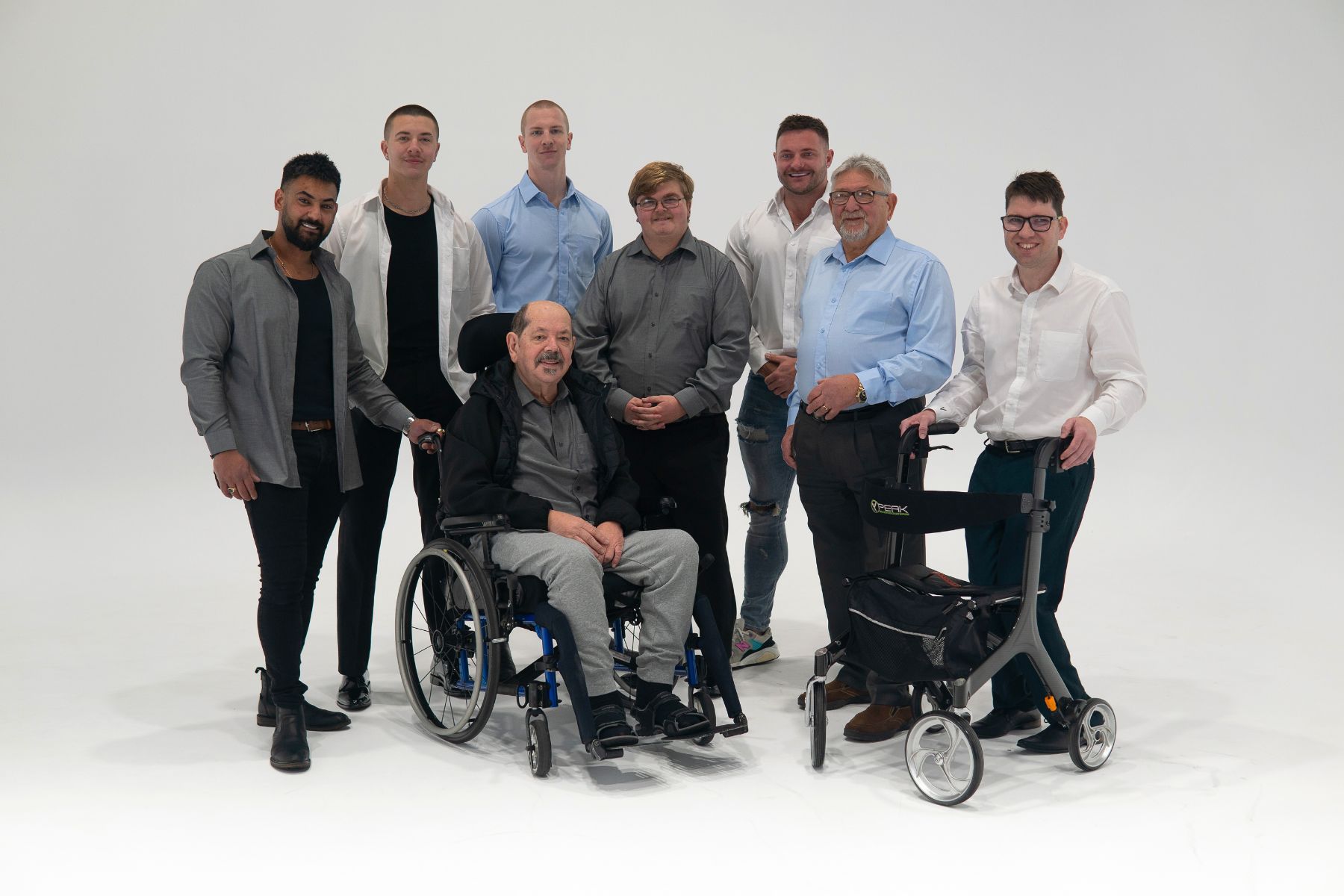Magnet tech a fashion game changer

What if you could save precious time fastening your shirt buttons in the morning? A new adaptive fashion brand from an Adelaide 40 Under 40 alumni takes the stress out of your routine.
When Jason Wisniewski required a shoulder reconstruction after an injury, he had to readjust his routine.
“Putting clothes on was such a struggle for me, I literally cut the sleeves of all of my shirts, so it was easy for me to put my shirts on during that time,” Jason tells CityMag.
Jason, a 40 under 40 winner of InDaily’s Sustainable Business Leader’s Award, said the experience showed him the barriers for those with a disability that most people wouldn’t notice: like doing up buttons on a dress shirt.
“I was actually able to experience that for myself and have a bit of a bit of understanding of what it’s like to adjust everything, even like shampoo and conditioner, to make sure they all had a pump so I could do it with one hand,” he says.
It was a custom-made magnetic shirt in a television news package about a boy with cerebral palsy that jumped out at him as a game-changer.
“That moment really stuck with me, because I knew so many clients that I worked with, or have worked with in the past, that would have benefited so much from that (so) I tried to contact them,” he says.
You might like
Allied Market Research estimates the global adaptive clothing market will reach $400 billion by 2026, and Jason can see why.
Both Jason’s son, who has Autism, and father, with nerve damage, struggle with buttons, along with clients at Vana Care, the disability service he co-founded.
After a few phone calls, he found out the shirt he’d seen on the news would cost about $400, custom-made to order, and figured something that could make such a difference should be easier to access.
“I kept thinking about it, because I know already in this sector, there’s still a big gap,” he says.
“The government is spending around $250 per hour for an occupational therapist to teach someone to put buttons on, to tie shoelaces.
“Obviously they’re trying to teach them a new skill, fine motor skills, of course.
Subscribe for updates
“But you know, we’ve changed so much over time already since whoever made the shoelace, we should just change that to make it more usable for everyone, because clearly it is not good for everyone. Why is that the standard?”
So along with business partner and personal trainer Gerard Lewis, they created Vaus, launching an Oxford shirt in blue, white and dark grey, complete with magnetic fastenings in place of buttons.
But you wouldn’t know.

“We wanted this shirt not just to be a quick fix, but we wanted to make sure that it’s good quality, that people who wear it aren’t embarrassed to wear it, and that it wasn’t noted, ‘oh, that’s that disability shirt’, ” Jason says.
“We wanted to make a product that everyone would enjoy wearing, that they could feel proud of.”
Jason says he’s received great feedback, even getting emotional at their photoshoot for the collection.
“While we’re doing that shoot, it was such a cool moment, we had a guy there who goes by Mr G, he thanked me for being there, told me how much he loves the shirt,” he says.
“I said, ‘don’t forget to take your shirt home’…then he gave me a hug, and he said, ‘this is the first shirt I’ve been able to put on myself. I go to church, I’m going to show everybody!’
“That made me feel emotional.
“We’re trying to make everyone feel equal, that was really important to me, and we did that.”
The shirt is the first in their adaptive clothing range, reimagining business wear, with plans to scale into a full casual menswear range, womenswear, and shoes in future.
In contrast to the $400 custom-made number, this one sells for $149.95 and buyers are eligible for NDIS funding under consumables for low-cost assistive technology or daily living supports.





